“Hey Siri, where’s the best coffee shop near me?” “Alexa, what are the hours for the local hardware store?” This is how many of your customers are searching for information today. Instead of typing into a search bar, they are simply asking their phones, smart speakers, and even their cars. This shift to voice search is changing the game for search engine optimization, or SEO.
For a small business owner, keeping up with digital trends can feel overwhelming. But preparing your website for voice search is not as complex as it might seem. In fact, many of the steps involve making your site more helpful and user friendly, which is great for your business anyway. This guide will walk you through what voice search means for your company and provide practical steps you can take to get ready.
Why Voice Search Matters for Your Business
Voice search is more than a passing fad; it’s a fundamental change in how people interact with technology. People speak differently than they type. Voice searches are often longer, more conversational, and phrased as complete questions.
Think about it. If you’re looking for a plumber, you might type “plumber emergency Austin” into Google. But you would probably ask your smart speaker, “Who is the best emergency plumber near me in Austin?” This difference is huge for SEO. It means your website needs to provide direct answers to the specific questions your customers are asking.
Businesses that adapt will have a big advantage. When a potential customer asks a question and your website provides the answer, you are the one who gets their attention. This builds trust and makes it much more likely they will choose you over a competitor.
How to Optimize Your Website for Voice Search
Getting your site ready for voice search involves a focus on clarity, speed, and providing direct answers. Here are actionable tips you can start using today.
Focus on Conversational Keywords
People use natural language when they talk. Your website’s content should reflect this. Instead of stuffing your pages with short, choppy keywords, think about the full questions your customers might ask.
- Actionable Tip: Brainstorm a list of questions your customers frequently ask. What problems do they need to solve? What information are they always looking for? Create pages or blog posts that directly answer these questions. For example, a bakery could write a post titled “How to Order a Custom Birthday Cake.”
Claim and Optimize Your Google Business Profile
For local businesses, a Google Business Profile listing is your most powerful tool for voice search. When someone asks for a business “near me,” Google pulls information directly from these profiles. This includes your address, phone number, hours, and customer reviews.
- Real World Example: A customer asks, “Alexa, find a pizza place open now.” Alexa will use Google’s data to find pizzerias nearby with hours listed as currently open. If your profile is incomplete or inaccurate, you will be invisible in these results.
- Actionable Tip: Claim your free Google Business Profile. Fill out every single section completely. Make sure your business name, address, and phone number are consistent everywhere online. Encourage happy customers to leave reviews to boost your visibility.
Aim for the Featured Snippet
Have you ever searched for something on Google and seen a special box at the very top with a direct answer? That’s a featured snippet, also known as “position zero.” Voice assistants love these snippets because they provide a quick, authoritative answer to a user’s question.
Securing a featured snippet is one of the best ways to become the chosen answer for a voice search. To do this, your content needs to be structured to provide clear, concise answers.
- Actionable Tip: Structure your content with questions as headings. Follow the heading with a short, direct paragraph that answers the question. Using lists with bullet points or numbered steps also increases your chances of earning a featured snippet.
Make Your Website Mobile Friendly and Fast
Most voice searches happen on mobile devices. If your website is slow to load or difficult to navigate on a phone, users will leave. Google knows this, so it prioritizes websites that offer a great mobile experience.
Your site’s speed is a critical factor. Voice search is about immediate answers, and a slow website creates a poor experience.
- Actionable Tip: Use Google’s free PageSpeed Insights tool to test your website’s speed. The tool will give you a score and suggest improvements you can make, such as compressing images or improving server response time. Ensure your website design is responsive, meaning it automatically adjusts to fit any screen size.
Create a Detailed FAQ Page
An FAQ, or Frequently Asked Questions, page is a goldmine for voice search optimization. It’s literally a list of questions and answers. This format is perfect for matching the conversational queries people use in voice search.
Think beyond basic questions about your return policy. Consider all the potential questions a customer might have at every stage of their journey, from initial research to post purchase support.
- Real World Example: A landscaping company might have an FAQ page answering questions like “How often should I water my lawn in the summer?” or “What is the best type of grass for a shady yard?” These are perfect voice search queries.
- Actionable Tip: Create a comprehensive FAQ page on your website. Use each question as a heading and provide a clear, helpful answer below it. This not only helps with voice search but also reduces the number of repetitive support questions you receive.
The Future is Vocal
Preparing your website for voice search is about making your business more accessible and helpful to your customers. By focusing on natural language, optimizing your local presence, and providing direct answers, you put your business in the best position to be found.
The shift toward voice is not something to fear. It’s an opportunity to connect with your audience in a more direct and human way. By taking these steps, you are not just optimizing for a new technology; you are building a better experience for your customers and setting your business up for long term success.
We Want To Talk To You About Your Marketing Goals.
Let’s Supercharge Your Online Growth!












